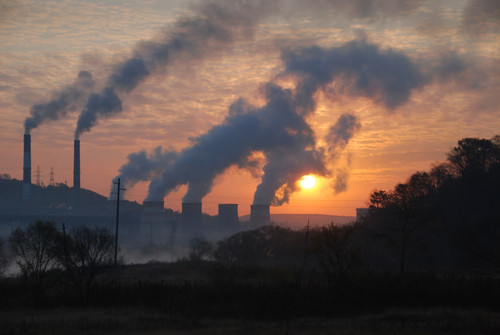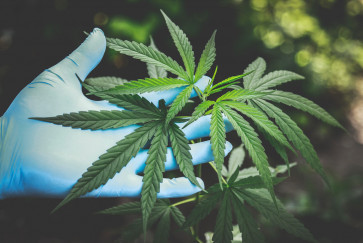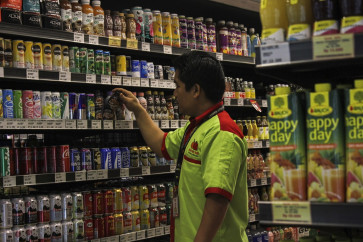Voluntary carbon markets to strengthen Indonesian NDC
In 2022 alone, 45.8 million tonnes of carbon credits were issued. There were a 3-4 percent growth in demand and 40 percent higher prices than in 2021, with community and nature-based solutions being the strongest.
Change text size
Gift Premium Articles
to Anyone

A
s a way to facilitate reduction of climate crisis-inducing greenhouse gas emissions, carbon market and trading have been established. Various domestic, regional, international and sectoral markets have been established everywhere.
There are two distinct markets for carbon, namely compliance and voluntary markets. How are they different, and how could we ensure our participation in the voluntary carbon market strengthens and does not undermine efforts to achieve Indonesia’s ambitious nationally determined contributions (NDC)?
The world has been increasingly and devastatingly hotter. The climate crisis is here with us already. To manage the risk of worsening, rapid and massive reduction of emissions that cause greenhouse gases, notably carbon dioxide, are needed. The 2015 Paris Agreement has set a target that the increase in global temperature needs to be kept well below 2 degrees Celsius with the best effort to not exceed 1.5 degrees. This will be achieved by peaking emissions by around 2030 and achieving net zero by mid-century, followed by further reduction.
Article 6 of the Paris Agreement allows for countries’ NDCs to be achieved individually or in cooperation with others through market mechanisms. Specifically, parts of the NDC can be traded with each other while some emission-reducing joint initiatives can also be traded with each other, all to achieve their respective NDCs.
A market mechanism, at least theoretically, will reduce the cost of achieving, or complying with, carbon emission reductions; or, it can achieve more reductions with the same budget. This has been shown in the reduction of sulfuric pollutants in the United States’ 1990 Clean Air Act, for one example, when the cost of compliance was found lower than originally expected when the market mechanism was applied. With lower cost of compliance, aggressive plans to tighten the emissions allocations over time follow an ambitious trajectory toward net zero and beyond.
Indonesia’s new Enhanced NDC, submitted in 2022, commits Indonesia to limiting its future emissions at about 32 percent with its own resources or 43 percent with international cooperation, below the business-as-usual trajectory by 2030. This is more ambitious than the original 2016 NDC or its 2021 update.
To facilitate the achievement of its NDC, Indonesia has embraced the carbon market mechanism through domestic and international carbon trading. Via Presidential Regulation No. 98/2021, Indonesia regulates the economic valuation of carbon and how it could support the achievement of its NDC.
Environment and Forestry Minister Regulation No. 21/2022 provides guidance on the implementation of the valuation of carbon. Other relevant ministerial regulations have also been issued. The most recent Position Paper by the Environment and Forestry Ministry seeks to clarify the regulatory framework of the Indonesian carbon market and to open the market.
Among the issues that became serious considerations in embracing international carbon trading were how and whether it undermines Indonesia’s effort in achieving its NDC; specifically, whether the lucrative global markets may lead to overselling of emission reduction achievements and leave insufficient amounts to achieve NDC.
This is a fair concern, since through the so-called corresponding adjustment, Article 6 of the Paris Agreement stipulates emission reduction that has been transferred through emissions trading cannot be used by the producing country toward meeting its NDC, hence avoiding double counting. As such, Indonesia needs to ensure there are sufficient emission reductions the country can claim to meet its NDC.
As such, due to this concern, trading of voluntary carbon emission reduction certificates (carbon “credits”) has been frozen for a while in Indonesia. But this moratorium of sales only affects voluntary carbon credits since the compliance market is yet to exist. The question, indeed, is whether intervening in the voluntary carbon market addresses the corresponding adjustment issue or affects Indonesia’s capability to achieve NDC.
Voluntary carbon markets have been growing strongly, despite some questions recently regarding the integrity of the reduction claims. In 2022 alone, 45.8 million tonnes of carbon credits were issued. There was a 3-4 percent growth in demand and 40-percent higher prices than in 2021, with community and nature-based solutions being the strongest.
Voluntary carbon markets are not there to achieve the NDC of any country. They only serve the private sector, which chose to commit internally and voluntarily to reduce emissions. The reasons vary, but mainly to transitionally adjust to the apparent incoming regulations on emission limitations and to project a green reputation to its market stakeholders.
But it is not (yet, at least) to comply with prevailing national emission reduction targets. So, when a company anywhere in the world purchases carbon credits from projects in other countries, the credits cannot be used by the country in which the company resides to claim emission reductions and to meet its NDC.
As such, voluntary carbon credits are not accounted for in the corresponding adjustments. As such, emission reductions “sold” to a foreign entity actually remain to be accounted for as reductions of the host country. As such, emission reductions made by an Indonesian entity “sold” to a foreign entity in a voluntary market actually remain to be Indonesian emissions and as such can be accounted for as a part of its NDC achievement.
Voluntary emission reductions, therefore, even when financed through voluntary carbon “trading”, can still be used to meet Indonesia’s NDC. This is similar to the Indonesia-Norway cooperation on emission reductions from deforestation and degradation of forests (REDD+), in which Norwegian payment to Indonesia’s emission reductions will not be used against Norwegian NDC. As such, the more Indonesia can claim emission reduction credits in the voluntary market, the more it can claim the credits toward meeting its NDC.
There are cases in which these voluntary carbon credits affect Indonesia’s corresponding adjustments and as such cannot be used to fulfill Indonesia’s NDC. One such case is when the emission reduction credits, for some reasons, are used for the buyer’s host country.
***
The writer is an environmental advisor and CEO of Landscape Indonesia.









